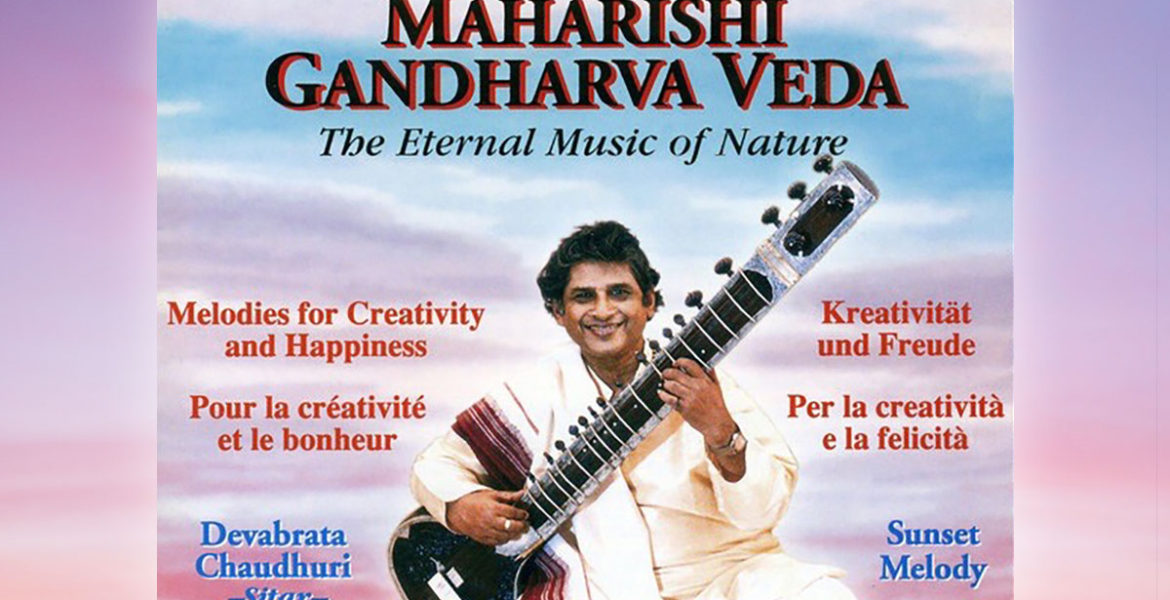The sitar master and pioneer of Maharishi Gandharva-Veda music, Pandit Devabrata (Debu) Chaudhuri has passed in Delhi at 85.
Debuji will be known to many of us through many wonderful concerts but also through his leadership of the Maharishi Gandharva-Veda programme around the world. In fact, his knowledge of the North Indian Classical music tradition to which he belonged was instrumental in helping Maharishi Mahesh Yogi develop, shape and launch the programme that resulted in three peace-creating world tours, visiting 500 cities in 1987 and 1988, and many subsequent musical and educational programmes.
He was born in 1932 in Mymensing, which is now in Bangladesh. Unlike many other prominent Indian musicians, however, Debuji was not born into a musical family as such. Nevertheless, hearing classical performances on record was enough to kindle his interest in music and he began training on sitar by the age of four. By great good fortune he was accepted as a student by the great Ustad, or master, of the Senia Gharana, or school, Ustad Mushtaq Ali Khan. His guru not only tutored him to the highest level of performance skill, but also instilled in him an enormous respect for traditional values, including the preservation of ragas in their most pure form, at a time when such traditions were under threat. It was this that attracted Maharishi’s attention to Debu as he sought musicians who could help him understand the most powerful form of what he came to call Maharishi Gandharva-Veda. At the same time, seeing a great champion for his guru’s — and their gharana’s — cause, Debuji was drawn to Maharishi and his programme. Their relationship developed into one of great admiration, friendship, and trust.
Of all the traditional Vedic sciences, Gandharva is the one with the least existing shastric sources, so the best that could be done was to seek out the most pure forms still maintained by the guru-parampara system. This is exactly what Debuji established for Maharishi. He was able to do this because, as if rising into the highest echelons of sitar performance, concertising world-wide for over sixty years and publishing several books was not enough, Debu also became renowned for his leadership as an educator.
When I visited India in 1993/4 under a grant from the American Society for Indian Studies, he was Dean and Head, Faculty of Music and Fine Arts at the University of Delhi. As my host his introductions were enough to secure appointments for me to visit and work with every leading musicologist in North India, at Universities from Jaipur to Varanasi. I also observed that leaders of other university music departments would call on him when they needed help in developing their own programmes. On one occasion, I accompanied him on a visit to Kurukshetra University where he was asked to help in interviewing potential faculty members. On the four-hour drive back to Delhi, when he became impatient with his driver and took the wheel, I observed that he probably could have also succeeded as a racing driver!
Another fond memory of Debuji was when he got the entire community at Maharishi International University out of bed before sunrise one morning so that he could demonstrate and perform the dawn raga Lalit. Despite initial grumblings — it was a cold morning — it turned out to be a magical experience.
With this glittering career, for which he received the prestigious Padma Bhushan, Padma Shri and Sangeet Natak Akademi awards, Debuji was a devoted family man and a warm-hearted and loyal friend of Maharishi’s world-wide Transcendental Meditation Movement family. Debu is survived by his son Prateek, daughter-in-law Runa and grandchildren Rayana and Adhiraj.
His final concert, given online, was of “Three Generations of Sitar” and featured himself plus Prateek and Adhiraj. He will be missed, but his legacy is in safe hands.
Read more about Maharishi Gandharva-Veda music:
Maharishi Gandharva-Veda Music – Music in Alliance with Natural Law

